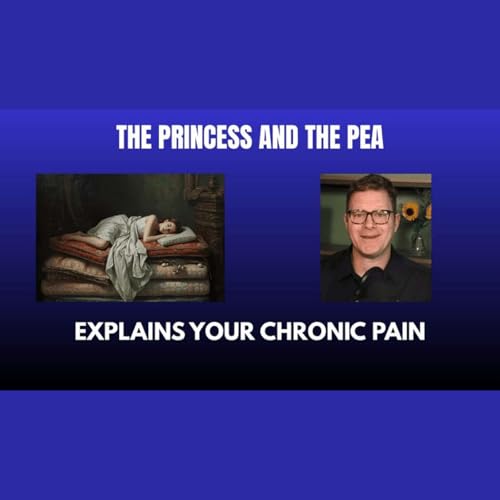
Conquering Your Fibromyalgia Podcast
No se pudo agregar al carrito
Add to Cart failed.
Error al Agregar a Lista de Deseos.
Error al eliminar de la lista de deseos.
Error al añadir a tu biblioteca
Error al seguir el podcast
Error al dejar de seguir el podcast
-
Narrado por:
When I started this podcast—and the book that came before it—I had my patients in mind. In the exam room, time is limited. But the need for understanding complex, often misunderstood conditions like fibromyalgia is vast. That’s why I created this space: to offer deeper education, validation, and hope.
If you’ve been told that fibromyalgia "isn’t real'" or that it’s "all in your head," I want you to know: I see you. I believe you. And you're not alone. This podcast is here to affirm what you’ve lived through and to explain the science behind what you’re experiencing.
Whether you're living with fibromyalgia, supporting someone who is, or a healthcare professional seeking to better serve your patients, I hope you’ll find trusted, evidence-based insight drawn from my 28+ years as a medical doctor, pediatrician, internist, lifestyle medicine physician, and clinical lipidologist.
Together, let’s bring compassion and clarity to a condition that’s too often misunderstood—and help make the invisible, visible. You can learn more at www.conqueringyourfibromyalgia.com.
© 2026 Conquering Your Fibromyalgia Podcast-
 38 m
38 mNo se pudo agregar al carrito
Solo puedes tener X títulos en el carrito para realizar el pago.Add to Cart failed.
Por favor prueba de nuevo más tardeError al Agregar a Lista de Deseos.
Por favor prueba de nuevo más tardeError al eliminar de la lista de deseos.
Por favor prueba de nuevo más tardeError al añadir a tu biblioteca
Por favor intenta de nuevoError al seguir el podcast
Intenta nuevamenteError al dejar de seguir el podcast
Intenta nuevamente -
 58 m
58 mNo se pudo agregar al carrito
Solo puedes tener X títulos en el carrito para realizar el pago.Add to Cart failed.
Por favor prueba de nuevo más tardeError al Agregar a Lista de Deseos.
Por favor prueba de nuevo más tardeError al eliminar de la lista de deseos.
Por favor prueba de nuevo más tardeError al añadir a tu biblioteca
Por favor intenta de nuevoError al seguir el podcast
Intenta nuevamenteError al dejar de seguir el podcast
Intenta nuevamente -
 6 m
6 mNo se pudo agregar al carrito
Solo puedes tener X títulos en el carrito para realizar el pago.Add to Cart failed.
Por favor prueba de nuevo más tardeError al Agregar a Lista de Deseos.
Por favor prueba de nuevo más tardeError al eliminar de la lista de deseos.
Por favor prueba de nuevo más tardeError al añadir a tu biblioteca
Por favor intenta de nuevoError al seguir el podcast
Intenta nuevamenteError al dejar de seguir el podcast
Intenta nuevamente


